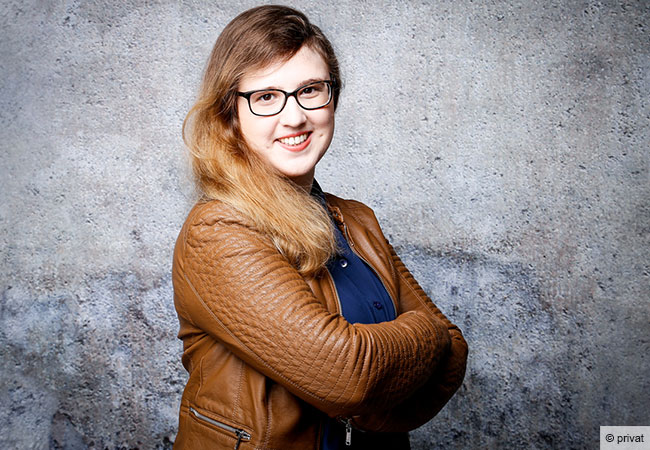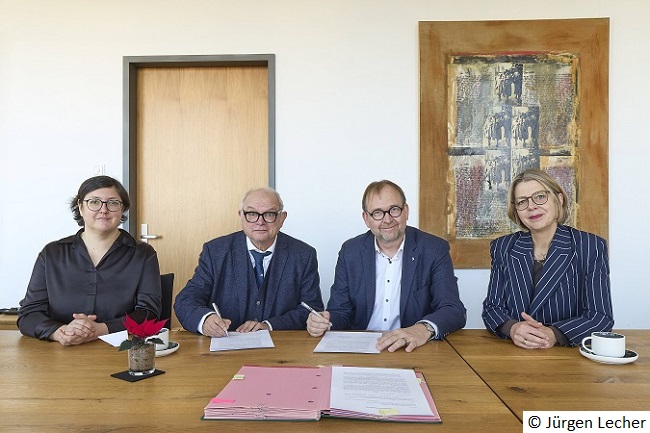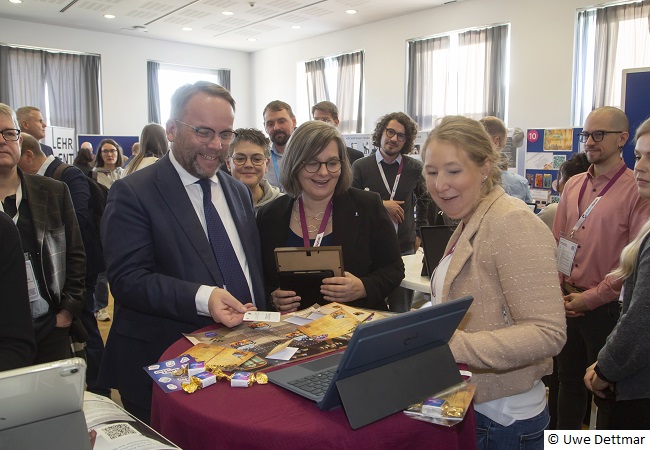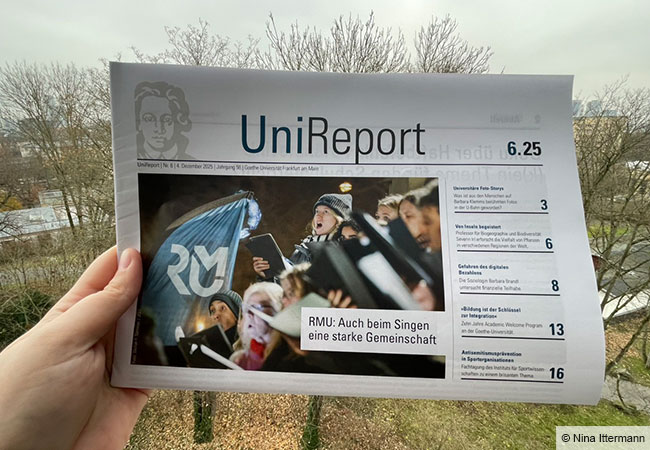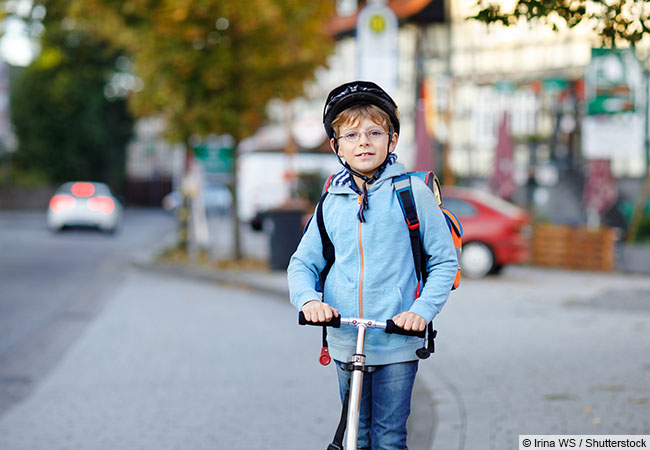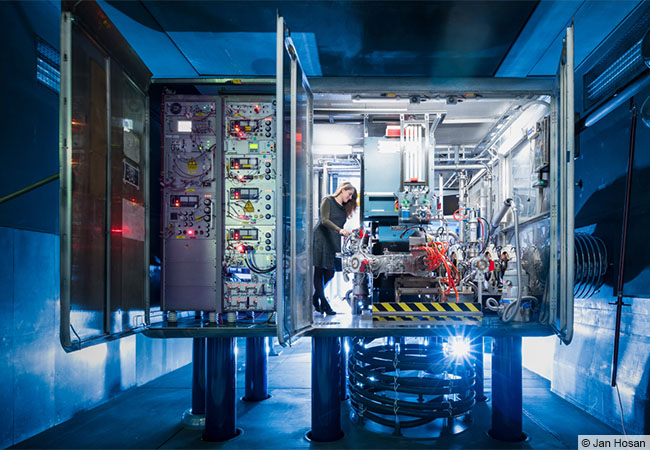An evening filled with inspiring, multifaceted and enriching exchange
This year the more party-inclined members of Goethe University’s international community were treated to back-to-back separate summer festivals. On the evening of June 28, a day after the university’s annual summer bash, the international community gathered for its very own summer party, held at Goethe University’s guesthouse on Ditmarstrasse. A total of 85 researchers from 37 different countries and their families came together for an evening filled with music, food and drink and, most important of all, inspiring company.
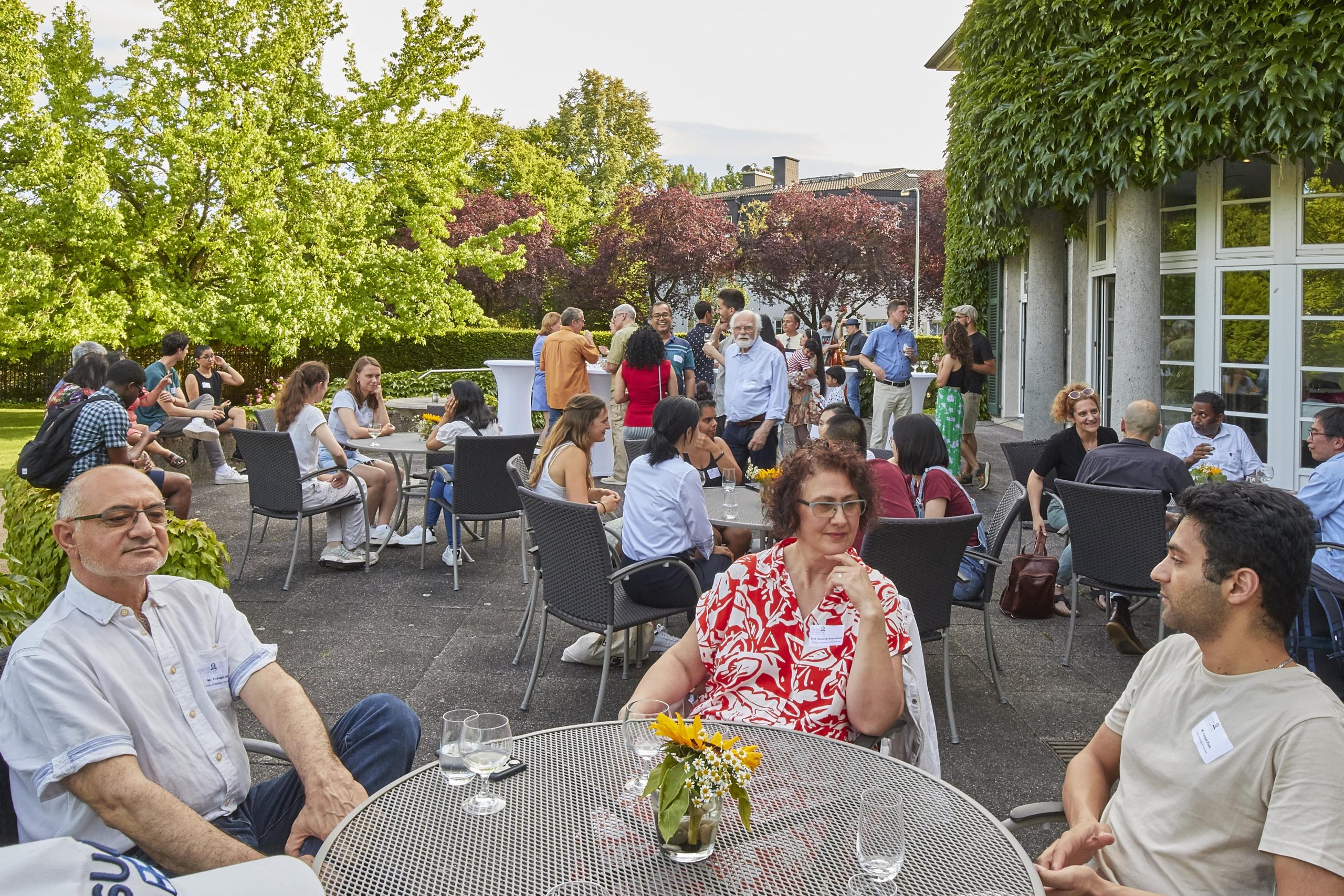
A theologian, an anthropologist, a critical theorist and a historian enter a guesthouse …
Where can you meet an Indian musical theologian, an Ethiopian cultural anthropologist, a Japanese critical theorist and a German historian? What sounds like a riddle or the beginning of a (bad) joke is anything but. The answer is quite simple, wholly rational and 100% factual: On the evening of June 28, you can find them at a table located on the patio of the guesthouse in Ditmarstrasse of course.
Meet Sukumar Ramapuram Samuel Vijay, Desta Girma, Prof. Miyamoto Shinya, and Dr. Matthias Köhler of the Goethe Research Academic for Early Career Researchers (GRADE). “It is by complete coincidence that we found ourselves at this table together,” Dr. Matthias Köhler says of his neighbor Sukumar Ramapuram, who, in 2021, became one of the first recipients of the Franz Adickes Foundation’s starting scholarship for international doctoral candidates, which had been set up just one year earlier. Before June 28, the two had only been in touch via email but had never met or seen each other, since Sukumar Ramapuram’s scholarship had to be postponed due to Corona-related travel restrictions – which also explains why he only arrived at Goethe University at the beginning of this year.
In response to the question of what made him choose Frankfurt, a city located some 7,500 kilometers from his hometown near Bangalore, he says: “I contacted my supervisor, Prof. Anja Middelbeck-Varwick, via Facebook and asked if I could do a PhD with her. She said I should send her my proposal. The rest is history.” Despite offers for scholarships in the UK and the US, it was his subject – musical theology – that tipped the balance in Germany’s favor, “because it is such an interesting country to study religion, not least because of the Reformation.”
Today Sukumar Ramapuram researches his PhD at Goethe University Frankfurt’s Faculty of Roman Catholic Theory and is learning German. What he likes most about his new academic home, he says, is the humility of the professors and the high degree of academic freedom.
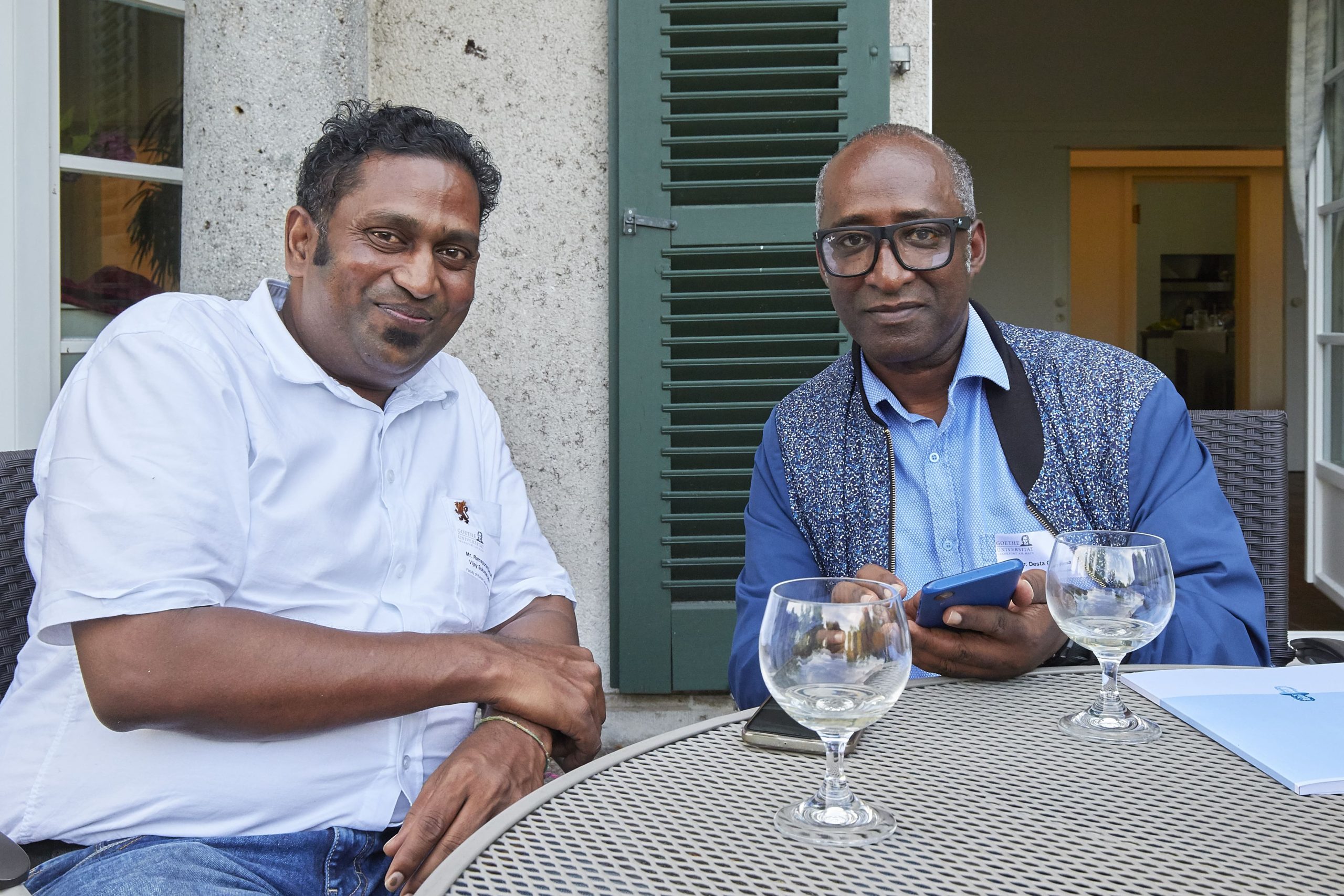
To the left of him is anthropologist Desta Girma,a PhD student from Ethiopia’s Mekelle University, who is conducting research on the cultural relations of the Kambaata people, with a special focus on gender and power relations. This is his second year in Germany, he says, explaining that, “I first came here on a Gerda Henkel Foundation scholarship for eight months in February 2023 before going back to Ethiopia for field research, and returning again in May.” Desta Girma’s PhD is supervised by Prof. Catherine Whittaker from the Faculty for Philosophy and History, and his stay is co-hosted by the Frobenius Institute for Research in Cultural Anthropology, Germany’s oldest anthropological research institution, which is associated with Goethe University Frankfurt.
One of his regrets, he says, is not having started learning German during his previous stay, but he is planning to enroll in the course offered by the university once the new semester starts. “In fact, we are going to do this together,” says his table neighbor Sukumar Ramapuram. Both agree that in addition to making everyday communication easier, knowledge of German would also give them more access to other information: “Focusing only on English literature means you are missing out on much knowledge and thought from German philosophers, for example,” explains anthropologist Desta Girma, who is currently in the process of organizing his data.
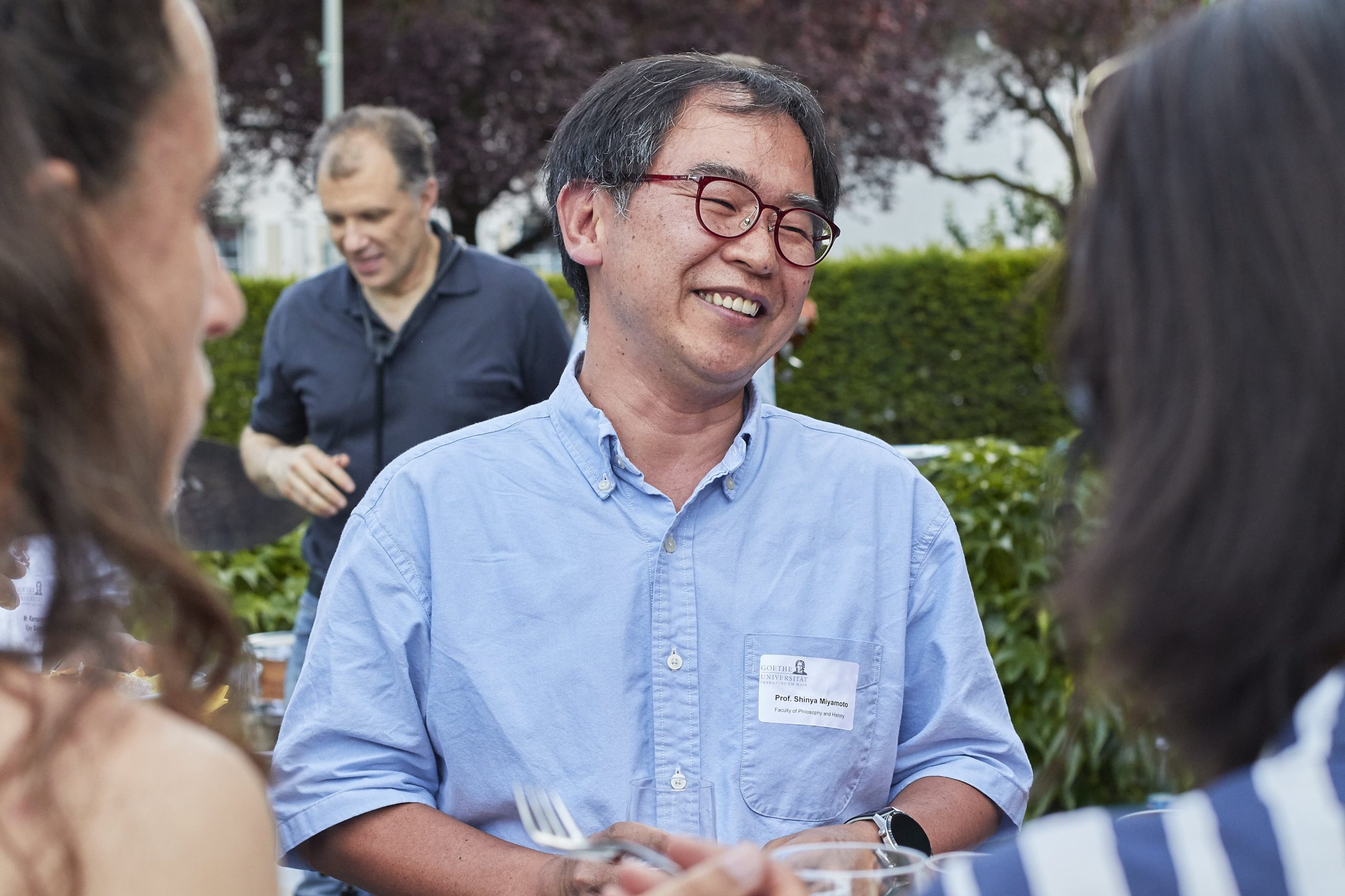
For Prof. Miyamoto Shinya, this is his third time at Goethe University Frankfurt. The deputy director of Meiji University Museum and professor at Meiji University’s School of Information and Communication speaks perfect German. Referring to himself as an “alter Hase” – which translates into “old rabbit” and is a German expression used to describe someone who has been there and seen it all – the philosopher explains that it was critical theory, especially of the Frankfurt School, that first brought him to Goethe University in 1998. “In my days as a student – I had a German Academic Exchange Service [Deutscher Akdemischer Auslandsdienst, DAAD] scholarship – the university was much, much smaller. The Faculty of Philosophy was located on Dantestrasse in Frankfurt’s Bockenheim district. It was a very old, and – I hate to say it – ugly building,” he says with a chuckle, “but already then, the level of learning, teaching and research was extremely good.” Miyamoto Shinya returned in 2012 for two further years of research and study. Now a professor, he is spending his third stay at Goethe University, home of the Frankfurt School, on a research semester, which includes teaching seminars twice a week.
“Influencer exchange”: Bringing computational mathematics, conceptual processing and the process of negation together
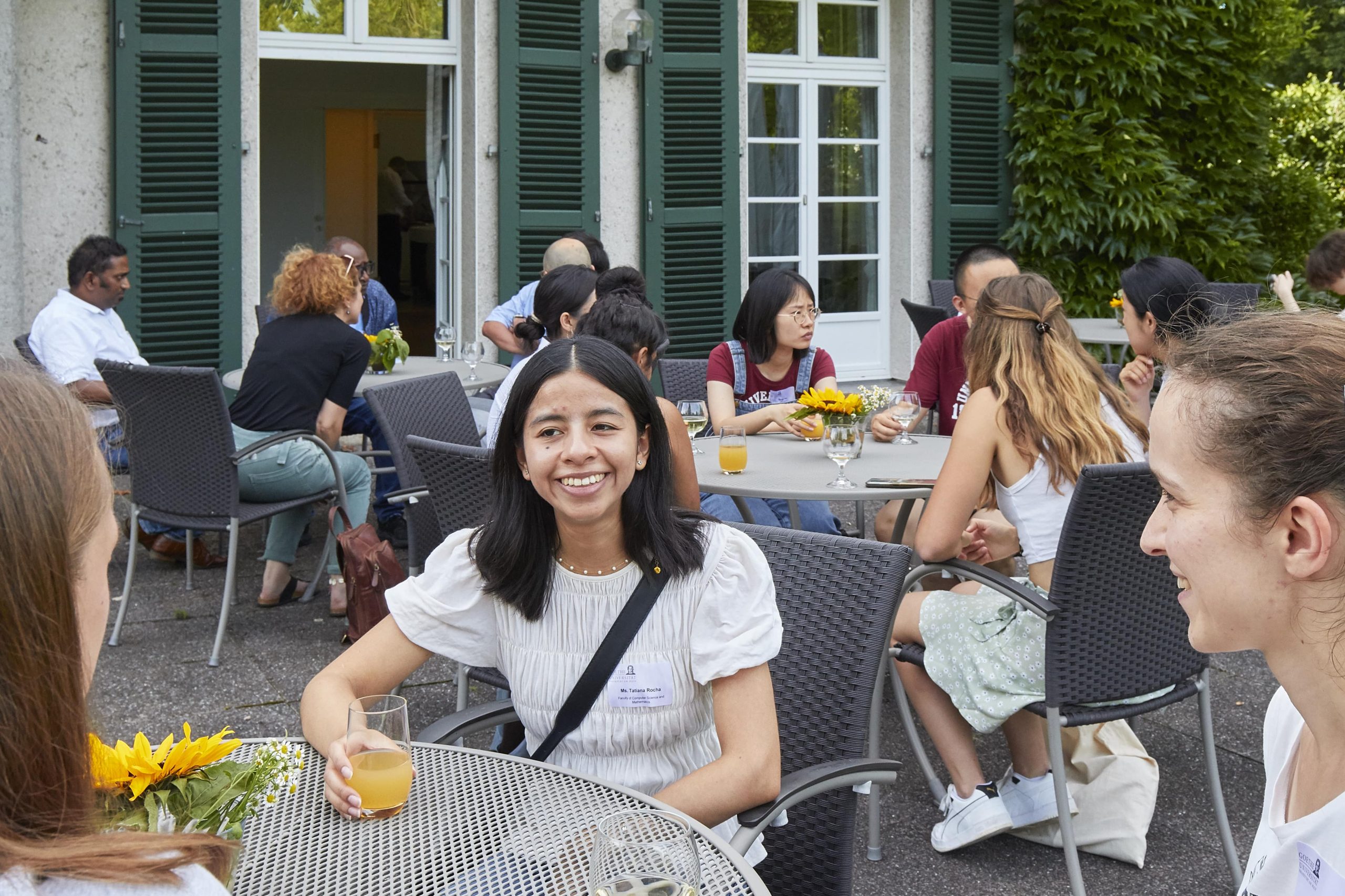
Tatiana Rocha is sitting a few tables further down with fellow PhD students Svetlana Mnogogreshnova and Daria Tack. Born in Bolivia but raised in Spain, she is now doing her PhD in theoretical computer science at Goethe University’s Faculty of Computer Science and Mathematics. Her supervisor is Prof. Holger Dell. “I study opinion dynamics, or, in other words, how each person is influenced by the people they know. I do so using mathematical tools, and with a view towards extracting mathematical properties from these connections and influences.” In a way, she says, she and her fellow researchers are looking at influencers in mathematical terms.
Tatiana Rocha started her German Research Foundation-funded PhD studies in September 2023, and just moved into one of Goethe University’s residences. “I feel more settled now. It was a daunting task: Moving to a new country, starting my PhD.” After the bureaucratic fog started to clear, she is now fully immersed in her research and planning to enroll in the university’s German course in the upcoming semester.
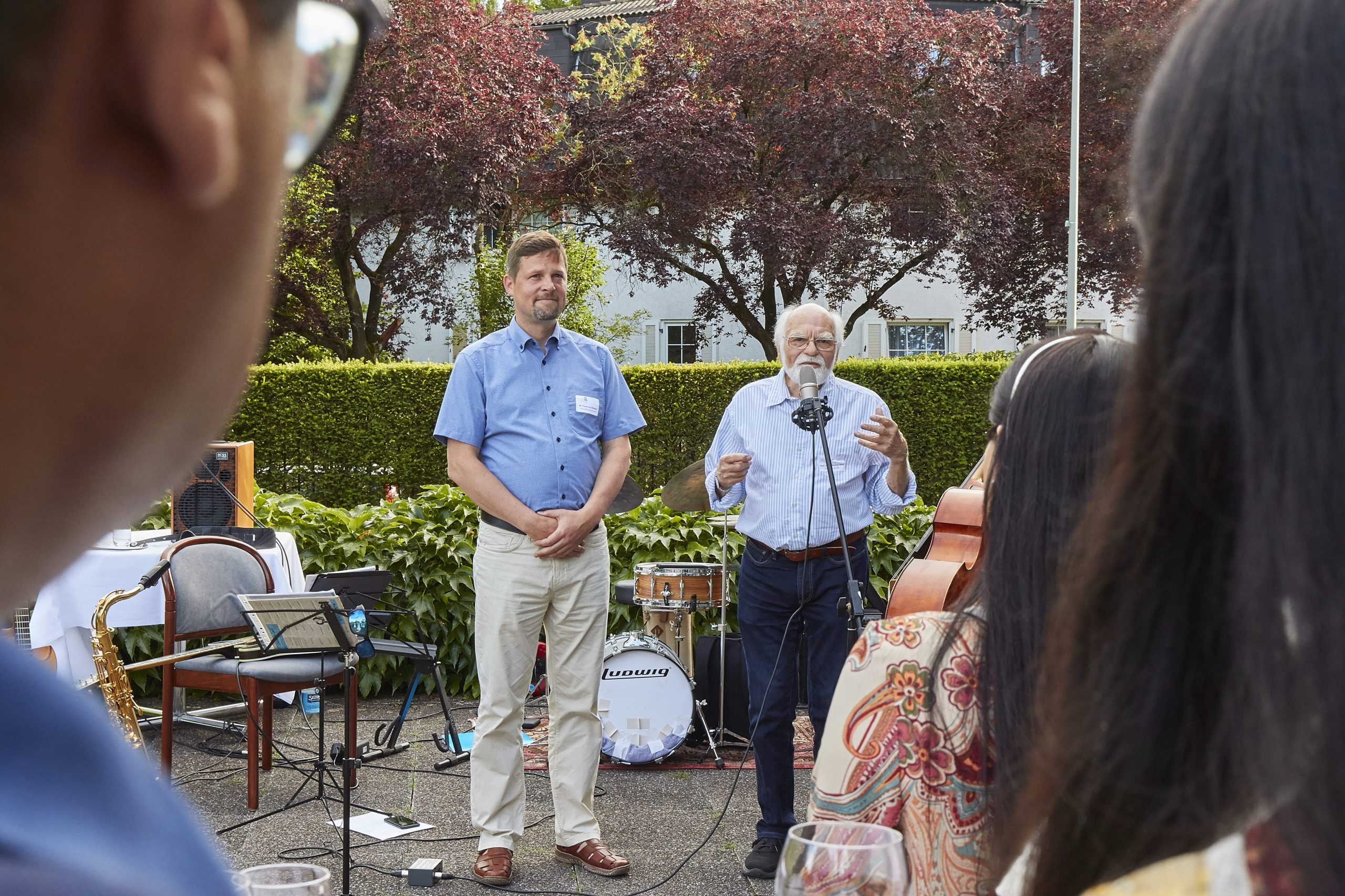
Just as she is talking about the bureaucratic hurdles, the band accompanying the evening stops playing and the organizers take to the microphones. Welcoming everyone, Prof. Jürgen Bereiter-Hahn, chairman of the Foundation for the Promotion of International Academic Relations at Goethe University, emphasized his association’s goal to make everyone present feel welcome. That includes help with accommodation and immigration, added Florian von Bothmer. The head of the Goethe Welcome Center had more positive news for those present: The imminent restructuring of the Foreigners’ Office – “a painful front on which we are expecting significant improvements.” The office will turn into an independent government agency, now called Frankfurt Immigration Office (FIO) Underscoring just how important it is to both the city and its university that international researchers feel welcome here was the presence of Jumas Medoff, head of Frankfurt’s municipal representation of foreigners at the event.
Tatiana Rocha and the two women seated with her at the table are thankful to Goethe University’s support structure, which in the case of Svetlana Mnogogreshnova, extends to an early conferring of a doctorate (which later turned out to have been a database mistake). “Technically I don’t have my degree yet. I am a postdoc here. I don’t know why the organizers thought differently,” she says laughing and pointing at her nametag, which bears the title “Dr.” But it certainly bodes well for her defense, which is just a few days away.
Her thesis in conceptual processing, Svetlana Mnogogreshnova says, is about “how we process the knowledge we have about certain things when we see either words or pictures denoting their attributes, as well as the order of activation of certain attributes.” The Russian native converses in impeccable English and is also fluent in German, which she started learning back home in Russia, at age 11. “The idea for this research came during a project I carried out as part of my Master’s studies in Düsseldorf,” she explains, adding that she only came to Frankfurt in May following eight years in Düsseldorf.
Under the supervision of Prof. Peter Indefrey at Heinrich-Heine-Universität Düsseldorf, Svetlana Mnogogreshnova conducted several experiments – in German – for her PhD. “In one I presented people with words that denote an object and its characteristics – which were either right or wrong in describing the object. In another, I presented them with pictures of these objects as they are or when they had changed attributes, like colors or elements. And I recorded their reaction times to find out how quickly they can detect these violations.” Laying it out in more laypeople’s terms, she explains that putting the attribute “has wings” together with the word “zebra” yields no logical match. What interests her is how quickly people make this connection.
Offering a sneak previous of her upcoming defense, she says her research found that people are more precise when it comes to retrieving a given category’s more prominent attributes. “Whereas color is a prominent category in food items – after all, we judge fruit by color to see if it is ripe and edible or not – in the case of animals we are more precise when it comes to judging body parts rather than colors.”
In response to the question of whether following the war in Ukraine it has become more difficult to be Russian in Germany, she says that it depends on the environment, adding that, “I have been lucky to meet many people who do not judge me by my citizenship and just take me for the person I am.” She herself has friends in Ukraine and Russia, and finds it difficult to see some of these friendships fall apart because of the war.
Where her future will take her to beyond the immediate defense of her thesis, Svetlana Mnogogreshnova doesn’t yet know. “I like the university environment because you are constantly in the midst of a flow of information. Someone is always finding out something, and it is always interesting to talk to people. So for now, academia is the more appealing option – for the time being here in Germany and then we will have to see.”
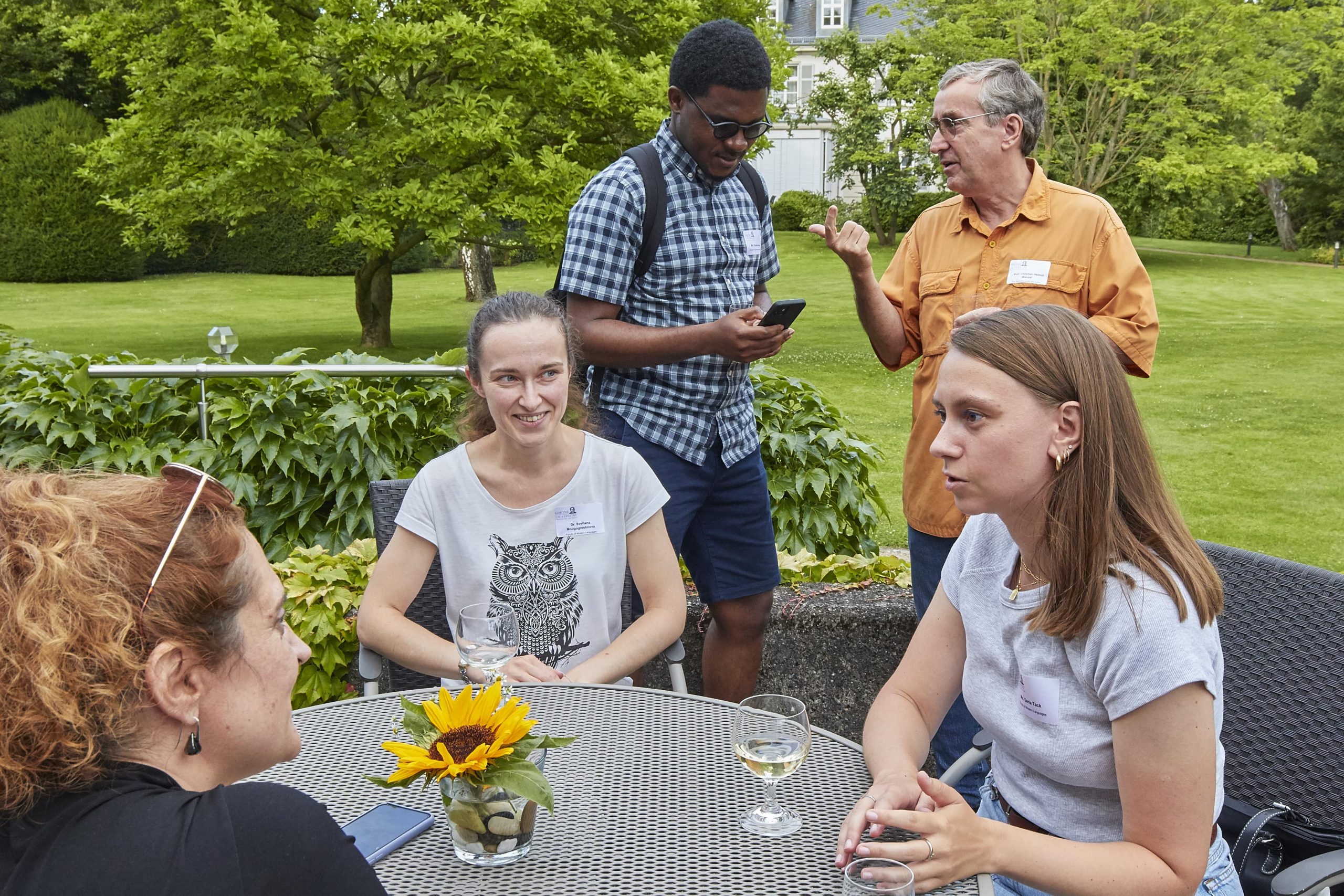
Daria Tack is another international researcher from Russia writing her PhD at the Faculty of Modern Languages. Like Svetlana Mnogogreshnova, she is not new to Germany, having spent four years studying for her Master’s in Potsdam, and also speaks the language fluently. Like her neighbor, she arrived in Frankfurt and at Goethe University in May and is also part of the same DFG-run Collaborative Research Center on negation, but unlike her, she is only getting started with her PhD.
Daria Tack is particularly interested in the role of executive functions. She explains: “Negation is very difficult to process, because to understand a negative sentence, we always activate the positive state in our minds – meaning we have to work with a real and an unreal state.” This process, she adds, is believed to be particularly difficult for children to learn since it involves more than language. “It is also about working memory, attention and other cognitive or executive functions, as well as theory of mind, i.e. the ability to understand that other people can have other thoughts, feelings, and desires.”
She is also interested in understanding the pragmatics in negation, like why people use a negative sentence and not an affirmative one. Under the supervision of Prof. Angela Grimm, Daria Tack’s PhD will focus on the roles played by executive functions and theory of mind in the process of negation. “What we in the project are asking is whether children are able to understand this aspect of negation or not, and if so, at what age.”
She doesn’t know yet where her future will take her. For now, she says, she is enjoying her time studying. “We will see what happens in three and a half or four years.”
When personal experiences meet research interests: The journey back to academia for a scientist in exile
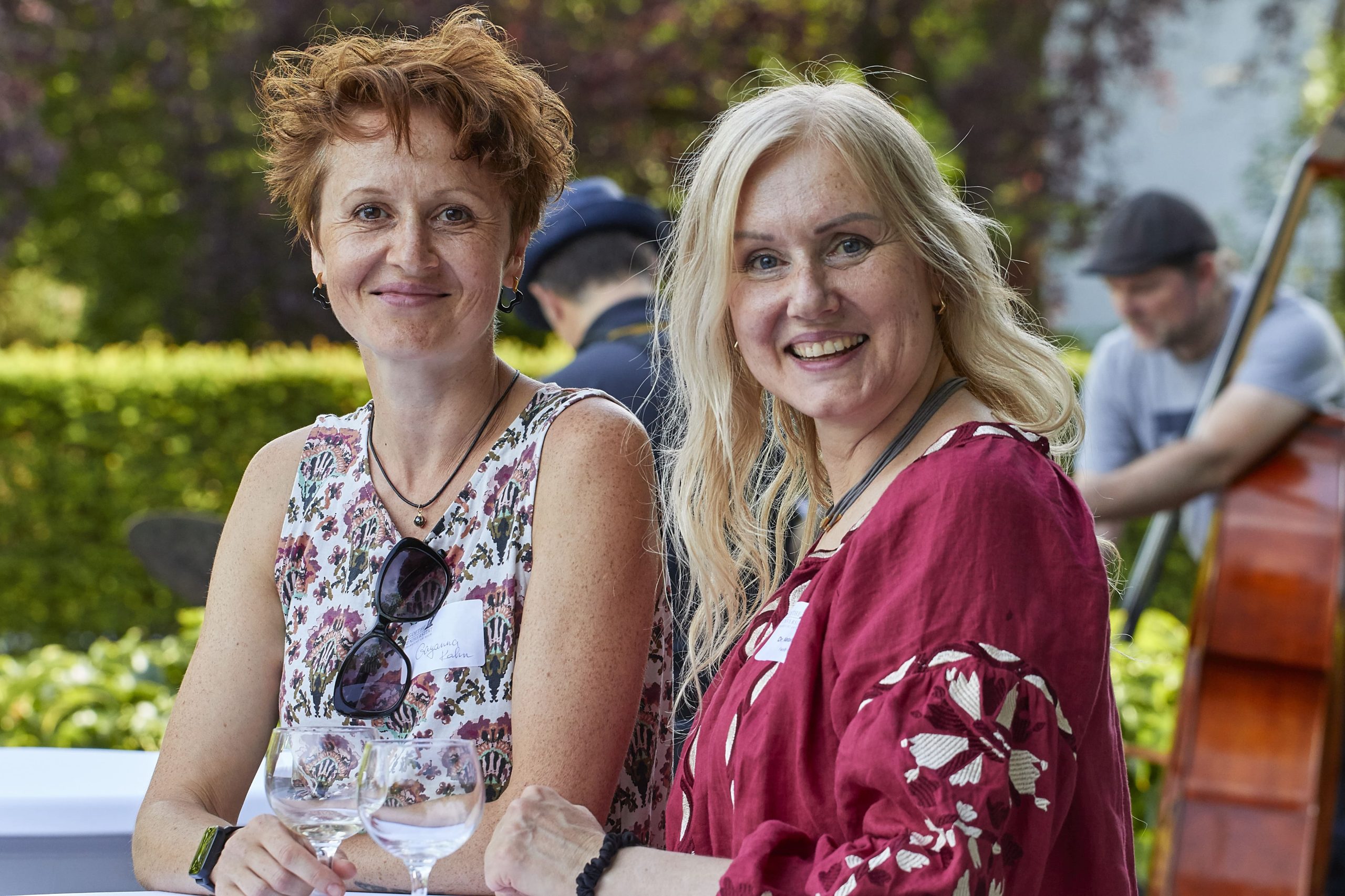
Alternating between the cool indoors and the outdoor garden, where she is playing with her two-year-old nephew and some of the other younger children, is Dr. Nataliia Aliabieva fromUkraine. She brought her sister along to the event, also to help with the communication. Although she arrived in Germany two years ago, she only found time to start learning the language three months ago and will start a DAAD program for Ukrainian scientists in exile in September. The expert in humanitarian international law will be working on her postdoc with supervisor Prof. Roland Broemel of Goethe University’s Faculty of Law. As part of the DAAD project, she will be looking at the current war in Ukraine and reparations for civil society, comparing it to other European wars.
Dr. Nataliia Aliabieva’s family comes from Donetsk, which has seen war and violence since 2014. When the war broke out in February 2022, the sisters decided to bring their parents, who were still living in Donetsk, home. With her younger sister pregnant and unable to travel from Germany, where she had settled following her Master’s in German Studies, Dr. Nataliia Aliabieva took a three-day journey home via Ukraine, Turkey, Russia and Crimea, only to reach Donetsk to learn that her father had died a few hours earlier. Following the funeral, she set on the arduous journey to bring her mother, who was left partially paralyzed following a stroke, to Germany. They traveled via Russia and Estonia for 14 days, alternating between bus and train, and ended up having to walk three kilometers on foot to cross the border between Russia and Estonia. “It was such a relief to take a flight from Tallinn to Berlin. Then the only thing left was to take the train to Frankfurt.” With her mother in safety and cared for, Dr. Nataliia Aliabieva returned to Ukraine once more to bring her son to Germany. The 22-year-old student of Kiev University is continuing his pharmacy studies online, and now lives with his mother in Marburg. The two are currently looking for an apartment in Frankfurt.
With the family together again and safe, Dr. Nataliia Aliabieva can now return to her research, which, she admits has become a lot more personal. “Psychologically, it is not easy, because my own family is also a victim of the war. But after receiving my PhD from Kharkiv University, I have been working on similar topics, including for the past 10 years at Donetsk State University of Internal Affairs. It is my passion and I want to continue doing it.” She is grateful to Goethe University and her postdoctoral supervisor and looking forward to picking up her research again.
Of aesthetics, partnerships and opening new horizons
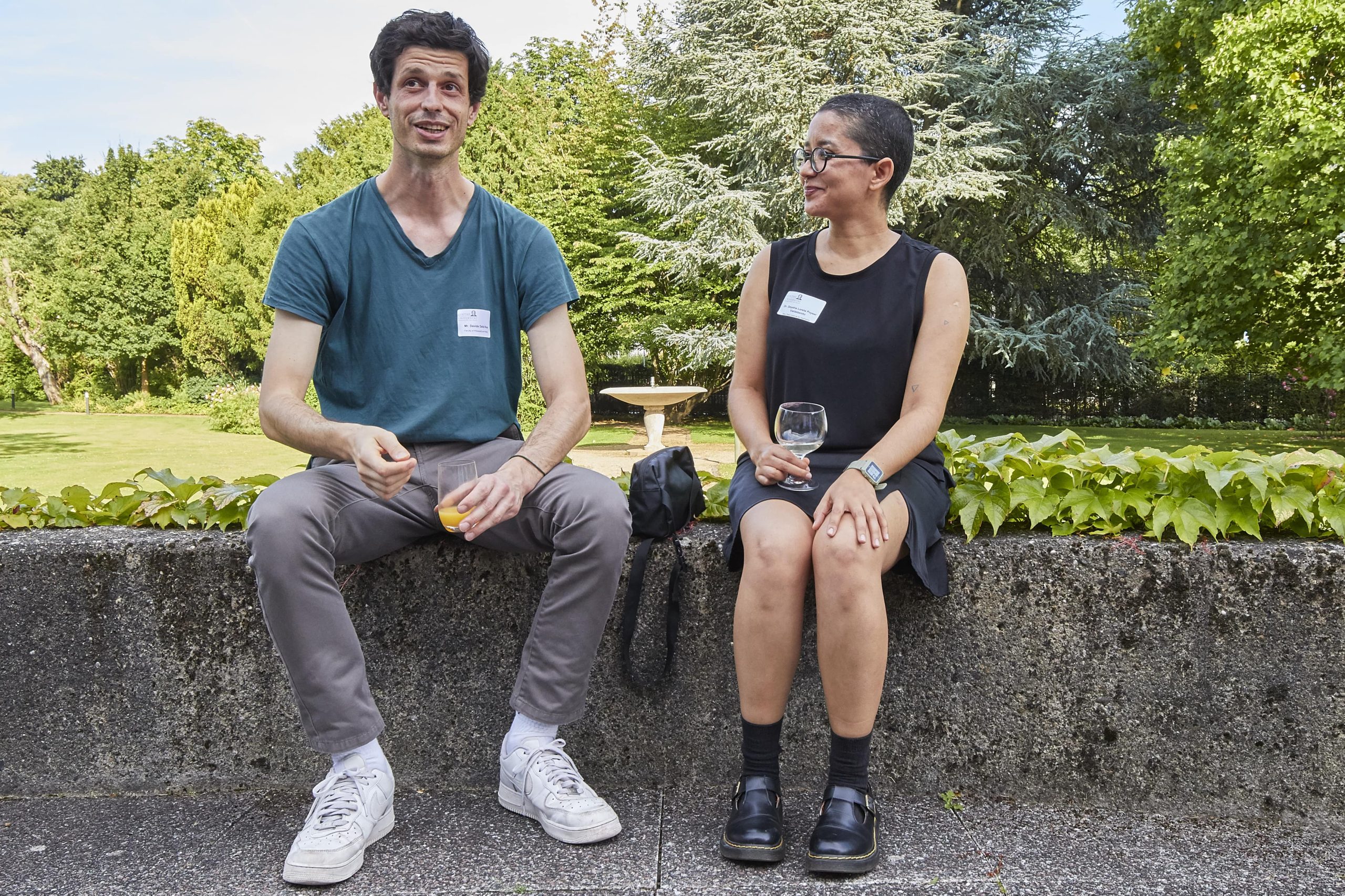
For Deysha Loreta Poyser Valdebenito, the past three months since arriving in Frankfurt have been full of new impressions. It is the Chilean researcher’s first time in Europe. “I really like Frankfurt,” she says, “the city is very different from what I thought it would be.” She points to the guesthouse, the balcony, the garden, the evening light, and says, “I focus on neuro-aesthetics and understanding the aesthetic experience of being moved by an image or an artwork. This is a beautiful place to do that – I love the German landscape and the colors you encounter here.”
Her PhD internship is actually with the Max Planck Institute for Empirical Aesthetics, with which her supervisor at Goethe University, Prof. Lucia Melloni, is closely affiliated and which is also a partner in the Frankfurt Alliance. “Even though my topic is specific, I benefit from the techniques, frameworks and conceptual tools offered by the consciousness framework, and find the different perspectives I have encountered during my time here both beautiful and enriching.” Adopting a bird’s eye view of the evening, and in keeping with Deysha Loreta Poyser Valdebenito’s aesthetic gaze, this is what the 2024 summer party for Goethe University Frankfurt’s international research community looked like: Tables filled with people of different nationalities and ages, chattering merrily along in countless many different conversations and languages, children playing together on the lawn (some older ones also on their phones), a band playing live music, ample food and drink and – in mathematical terms – an unknown amount of influencing in the spirit of open, free, enriching, enabling and supportive academic exchange among equals.


